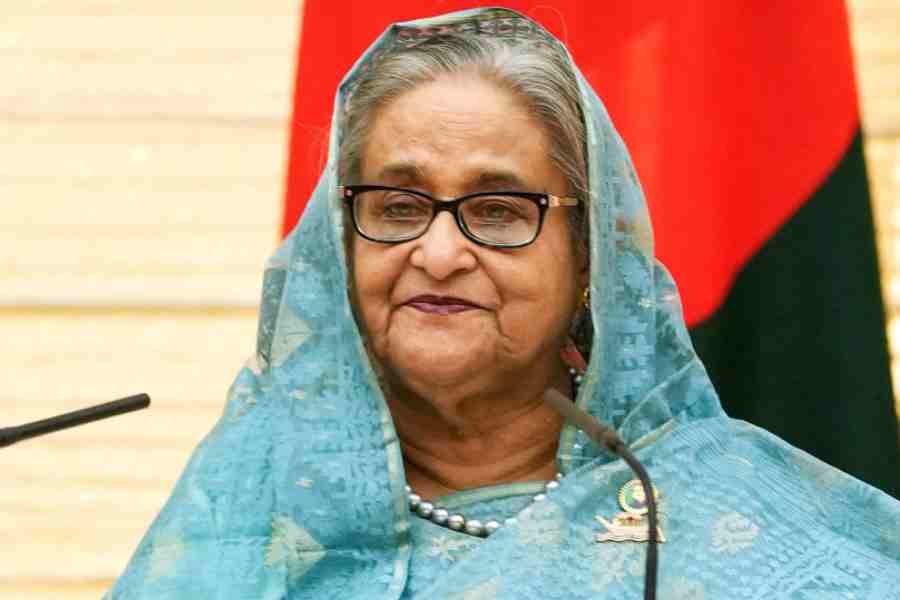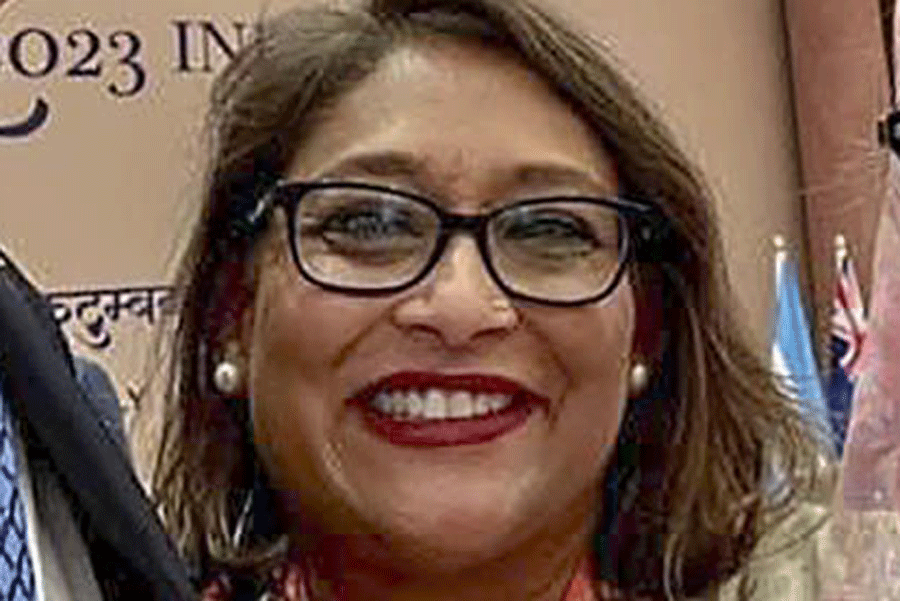The ruling Awami League in Bangladesh has heaved a sigh of relief following Indian foreign secretary Vinay Mohan Kwatra’s comment that India had shared its “perspective” on the neighbouring country “very clearly” during the India-US 2+2 Ministerial Dialogue that began in New Delhi on Friday.
“We did discuss very extensively regional issues and so far (as) Bangladesh is concerned, we shared our perspective very clearly in the dialogue,” Kwatra said at a news briefing on Friday afternoon.
“It is not our (India’s) space to comment on the policy of a third country.... The election in Bangladesh is their internal matter and it is for the people of Bangladesh to decide their future.”
Defence minister Rajnath Singh and external affairs minister S. Jaishankar met their US counterparts — defence secretary Lloyd Austin and secretary of state Antony Blinken — respectively, for the fifth 2+2 Ministerial Dialogue.
Kwatra’s comment, which stressed that India “respect(s) the democratic process in Bangladesh”, willy-nilly confirmed New Delhi’s backing for Sheikh Hasina, who will lead her party into the January 2024 general election looking for a straight fourth term as Prime Minister.
Several foreign policy experts felt the comment had also sent a message to the US establishment, especially to Peter Haas, the American ambassador to Bangladesh, that they should steer clear of the neighbouring country’s internal political affairs.
The Awami League views the US authorities, especially the Haas-led mission in Bangladesh, as interfering in the country’s political process on the pretext of ensuring a free and fair election.
There have indeed been questions about the way the last two general elections were conducted in Bangladesh. However, the first salvo from Washington — in the form of a new visa policy for Bangladesh, announced in May, to support the goal of “holding free, fair, and peaceful national elections” — was seen as arm-twisting.
Haas’s conduct over the past few months — he has held several meetings with Opposition parties and tried to persuade the election commission to hold a dialogue with political parties — has been seen as activism unbecoming of a foreign diplomat. It has also raised questions about Washington’s intentions.
The Bangladesh Opposition — led by the Bangladesh Nationalist Party and its ally Jamaat-e-Islami — has used the US actions to build a narrative about the West being against the establishment in Dhaka and reiterate its demand for a poll-time caretaker government.
In this situation, there had been speculation in the ruling establishment in Dhaka whether India was on the same page with the US.
Kwatra’s comments put all such speculation to rest on Friday, reiterating what foreign ministry spokesperson Arindam Bagchi had said in his weekly briefing.
New Delhi’s message that the election in Bangladesh is its “internal matter” is being seen as a clear rejection of the US approach to India’s eastern neighbour.
“As close friends and partners of Bangladesh, we respect the democratic process in Bangladesh and will continue to support the country’s vision of a stable, peaceful and progressive nation,” the foreign secretary said.
The comments come against the backdrop of the Opposition’s violent protests of October 28 — during which a policeman was battered to death, the chief justice’s home was attacked, and scores of journalists were beaten up —which drew scant condemnation from the US.
“We welcome the statements of the Indian foreign secretary as stability is fundamental for Bangladesh, peace is a must and progressive politics is what the country has always fought for,” said Shamser Mobin Chowdhury, former foreign secretary and current president of Trinamul BNP, a fledgling party that will contest this election.
“It is our expectation that the message has been received well by the US government.”
Although the mood in the ruling party was upbeat, Biplab Barua, office secretary of the Awami League and special secretary to Hasina, was guarded. “We appreciate whatever he (Kwatra) said today,” he said.
“Our country follows the foreign policy golden rule of friendship towards all, malice towards none, which was formulated by the Father of the Nation, Mujibur Rahman. We appreciate whatever he (Kwatra) said as it captures India’s respect for us.”











